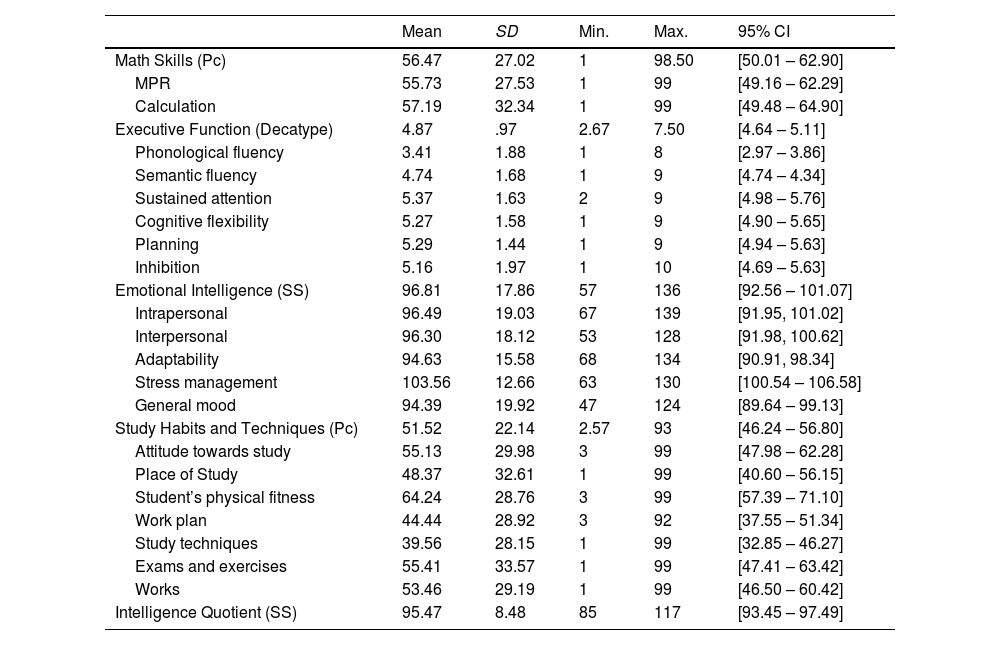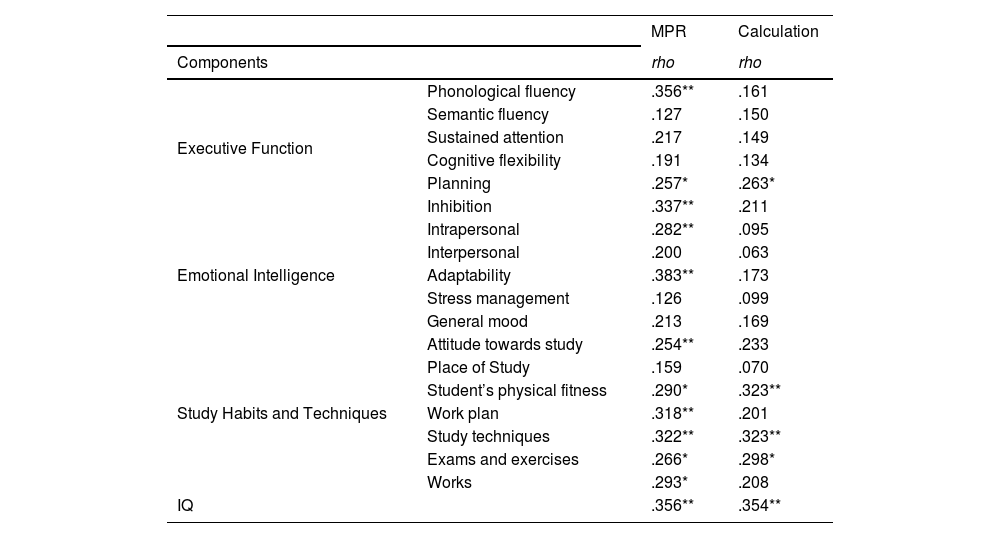As mathematics is the most difficult subject for students from an early age, it is necessary to understand the underlying processes. Thus, the aim of this study was to analyze the relationship between calculation and mathematical problem-solving (MPR) skills with Executive Functions (EF), Emotional Intelligence (EI), and Study Habits and Techniques (SHT) in children aged 9-12 years. The study was carried out with 70 students (40 girls) from five schools in the Autonomous Community of the Basque Country of Spain. The results showed that MPR was significantly related to EF, SHT, and EI, while calculation was only related to EF and SHT, all this controlling the effect of IQ. Furthermore, MPR has correlated with a greater number of EF, EI, and SHT subscales than calculation. Along with this, significant differences have been observed in EF and EI depending on the level of performance in MPR, while in calculation the significant differences have been found in EF and SHT. Therefore, different neuropsychological processes underlie each mathematical skill, which implies the need for differential intervention with each of them. All of this through programs that encourage the mathematical learning of all students indiscriminately or that promote the development of mathematical skills according to the specific difficulty of the student.
Dado que matemáticas es la asignatura más difícil para el alumnado desde edades tempranas, es necesario comprender los procesos subyacentes. Así, con el presente estudio se ha pretendido analizar la relación entre las habilidades de cálculo y resolución de problemas matemáticos (RPM) con las funciones ejecutivas (FE), la inteligencia emocional (IE) y los hábitos y técnicas de estudio (HTE) en estudiantes de 9-12 años. El estudio se ha llevado a cabo con 70 estudiantes (40 niñas) de cinco escuelas de la Comunidad Autónoma del País Vasco de España. Los resultados han mostrado que la RPM se relaciona significativamente con las FE, la IE y los HTE, mientras que el cálculo sólo ha correlacionado con las FE y los HTE, todo ello controlando el efecto del CI. Además, la RPM ha correlacionado con un mayor número de subescalas de las EF, la EI y los HTE que el cálculo. Junto a ello, se han observado diferencias significativas en las EF y la EI en función del nivel de rendimiento en RPM, mientras que en cálculo se han encontrado diferencias significativas en las EF y los HTE. Por tanto, diferentes procesos neuropsicológicos subyacen a cada habilidad matemática, lo que implica la necesidad de una intervención diferencial con cada una de ellas. Todo ello a través de programas que fomenten el aprendizaje matemático de todo el alumnado indistintamente o que promuevan el desarrollo de las habilidades matemáticas en función de la dificultad específica del estudiante.









